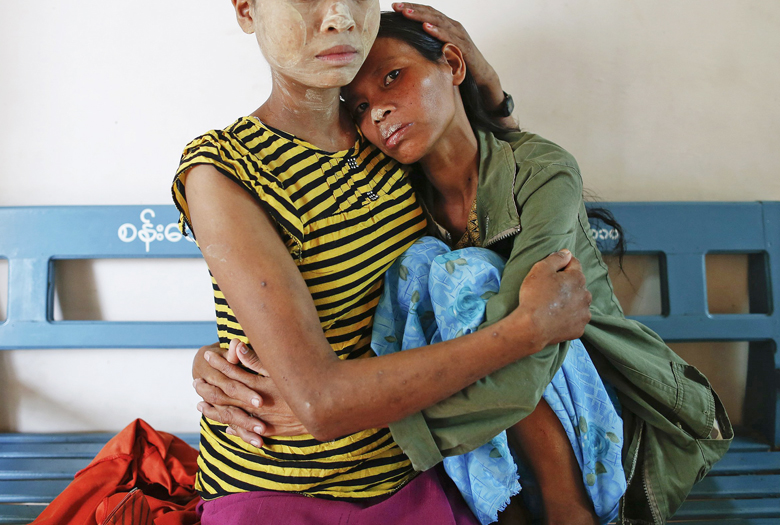the Jakarta Globe, 18 August 2014
 Jakarta. Activists have blamed an ineffective health awareness campaign and ignorance about risky sexual behavior for the double-digit increases in HIV/AIDS infection and mortality rates in Indonesia since 2000, even as the global averages dropped.
Jakarta. Activists have blamed an ineffective health awareness campaign and ignorance about risky sexual behavior for the double-digit increases in HIV/AIDS infection and mortality rates in Indonesia since 2000, even as the global averages dropped.
Indonesia had an HIV/AIDS incidence, or number of cases, of some 45,000 in 2013, and 14,400 deaths that same year, according to a study by the US-based Institute for Health Metrics and Evaluation published last month in the British medical journal The Lancet.
Those figures were up 28 percent and 87.5 percent respectively from 2000. During the same period, by contrast, the global HIV/AIDS incidence decreased by 3.9 percent and deaths declined by 1.5 percent.
"Various government programs to tackle HIV/AIDS are still considered ineffective, if not unsuccessful, because of poor campaigning methods," Soewarta Kosen, the Health Ministry's chief policy analyst, said at a recent seminar in Jakarta.
He cited the case of programs to encourage the use of condoms — always a sensitive topic in religiously conservative Indonesia, which doesn't even prescribe sex education in the public school curriculum.
"In Thailand and the Philippines, the spread of HIV/AIDS has dropped dramatically because of the success they achieved in condom use," said Soewarta, who was a co-author of the study.
Thailand saw a 9.6 percent decrease in deaths among people with HIV/AIDS between 2000 and 2013, while the Philippines recorded a 1 percent increase.
Risky sexual behavior, often willful, is also a major factor in the huge increase in new HIV/AIDS cases in Indonesia, says Baby Jim Aditya, an HIV/AIDS activist.
"Educating people on the importance of condom use isn't easy because they tend to be stuck in their own ways," she said of the general reluctance among Indonesian men to use a condom. "Such behavior is hard to change."
High-risk groups include sex workers, men who have sex with other men, and intravenous drug users. But experts have identified married women as being the fastest-growing group of people at risk of contracting HIV, and have attributed the phenomenon to serial philandering among many Indonesian husbands.
"Risky sexual behavior isn't a problem associated exclusively with young, single people — their chances [of contracting HIV] are actually much smaller than for married people," Baby told the Jakarta Globe."And housewives are the most vulnerable in that group, because of their husbands.
"So how do we protect these vulnerable individuals, including babies? Education is the key to overcoming such a serious problem," she added.
She lauded government programs such as ongoing education campaigns, an increasing budget allocation every year to tackle HIV/AIDS, the free provision of antiretroviral drugs and therapy, and efforts to prevent mother-to-child transmission.
But she said they would only work if people with HIV/AIDS came forward to make use of them, which many were reluctant to do because of the stigma associated with the disease.
"So even though the treatment is available for free, there's no guarantee that people will come. It's hard to encourage them," Baby said.
By Vita A.D. Busyra
Source: the Jakarta Globe










